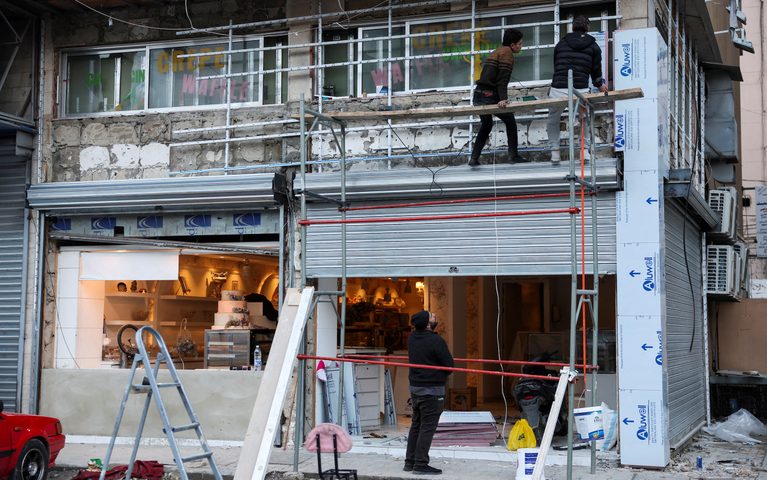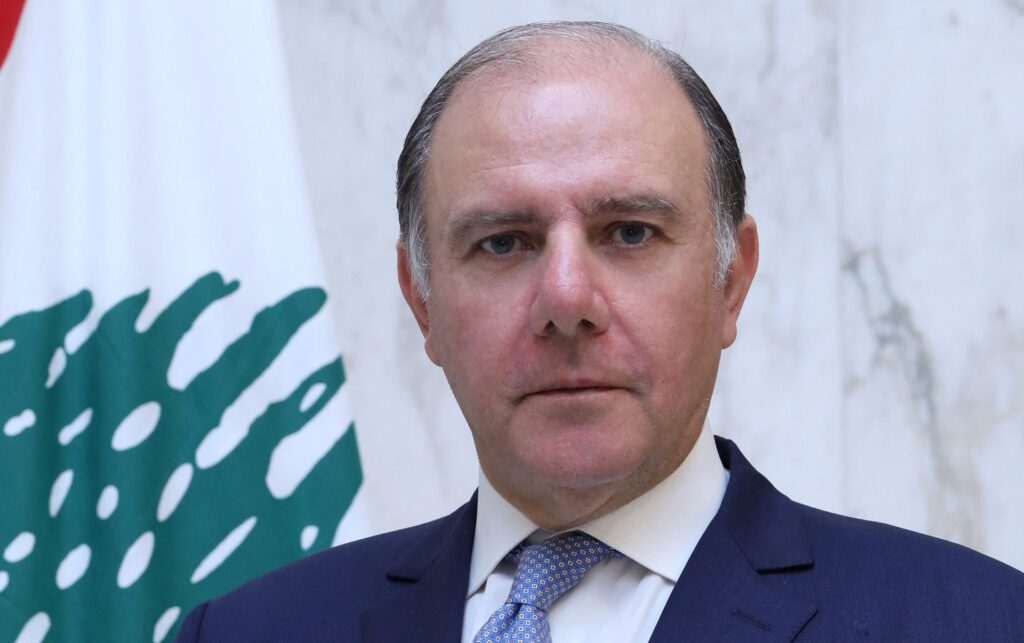
Lebanese Presidency Press Office/Handout via Reuters
Karim Souaid named bank governor
Must tackle $76bn in frozen deposits
Hopes he will ‘revitalise banking’
Last Thursday the Lebanese cabinet approved Karim Souaid as the sixth governor of the country’s central bank, Banque du Liban.
Souaid, a former investment banker and asset manager, takes up the post after two years in which Lebanon had no formal banking chief and as the country enters a seventh year of economic and political turmoil.
His most pressing task will be to address the $76 billion in customer deposits ostensibly frozen in Lebanon’s ramshackle banking system.
Banque du Liban has been under the interim control of deputy governor Wassim Mansouri since July 2023, following the departure of Riad Salameh.
Salameh, who ran the bank for 30 years, has been charged with money laundering, embezzlement and illicit enrichment. He has denied any wrongdoing.
As the central bank’s longest-serving governor, he was the architect of the financial-engineering policies – offering high interest rates for depositors’ cash recycled into government treasury bills – that many have blamed for a crash in 2019.
Souaid, who is only the second professional banker to take the top job after Salameh, inherits an economy that has contracted during each of the previous five years, a monetary system that has in effect been “dollarised” and a creaky currency regime that has pegged the dollar at around 89,000 Lebanese pounds since 2023.
After the signing of a ceasefire agreement with Israel in November and the election of a new president in January, many are hopeful that the country has a chance to become more normal.
“It is crucial for Lebanon to have a new central bank governor at the beginning of this new era,” says Marwan Barakat, chief economist at Bank Audi.
“It is likewise a prerequisite for financial sector rebalancing and restructuring,” he adds, “to normalise and revitalise banking sector activity at large”.
 Reuters/Mohamed Azakir
Reuters/Mohamed AzakirIn recent years Lebanon has had a “zombie banking sector”, with banks largely reduced to facilitating remittances and withdrawals in the country’s cash economy.
Billions in dollar deposits remain frozen. The number of “lollar” accounts remains subject to debate – as do proposals on who should be held accountable for their whereabouts.
Less than one week into the job, Souaid has yet to issue any recommendations. However, his previous social media posts and professional affiliations suggest he will support the state taking on the lion’s share of the burden and oppose proposals to restructure or liquidate commercial banks.
Many Lebanese hold the owners and managers of the commercial banks responsible for the 2019 crash.
“This is a big victory for the banks,” says Fouad Debs, a lawyer and member of the Depositors Union, a group that advocates for Lebanese bank customers.
“It’s very clear where we’re headed,” according to Debs. He says Souaid “doesn’t believe the banks should be held accountable. This is very dangerous and it is the opposite of everything we’ve been calling for”.
In February, the Lebanese government announced it was pursuing a new agreement with the International Monetary Fund following a draft funding deal in 2022.
The IMF has long called for reforms, including the repeal of a banking secrecy law and a conclusion to the problem of deposits.
The organisation has not made specific recommendations on who should be held accountable for the $76 billion, but those with knowledge of negotiations say it has treated with suspicion the suggestion that it ought to be the government, which is working within a strict austerity budget.
Last Thursday IMF spokesperson Julie Kozack reiterated the need for a “comprehensive strategy for economic rehabilitation” in Lebanon. This strategy should address the restructuring of the financial sector, reforms to governance and to state-owned enterprises, she said in a press briefing.
“Critically, it’s going to be important to enhance data provision, to improve transparency and to inform policymaking,” said Kozack.
Souaid’s appointment has also proved divisive in a country emerging from a war with Israel that has caused billions of dollars of damage.
The debate seems to have set President Joseph Aoun, who was sworn in on January 9, against his prime minister Nawaf Salam.
Souaid was backed by Aoun, whose economic adviser Varouj Nerguizian sits on the board of Growthgate Capital. Souaid is a managing partner at Growthgate, an asset manager based in Bahrain and Dubai.
The new bank governor also received the support of other traditional political groups in the country, including the right-wing Christian party Lebanese Forces and Hezbollah, which provided its backing despite his vocal opposition to its policies.
While Salam approved Souaid’s appointment, he made reference to “reservations” about his candidacy after the cabinet vote. Those with knowledge of the negotiations said he had been against the appointment.
Souaid is yet to give any clear indication of how the bank will operate under his tenure.
“It is too early to judge,” says Simon Neaime, an economics professor at the American University of Beirut. “There are a lot of politics going on right now with no room for economics.”



